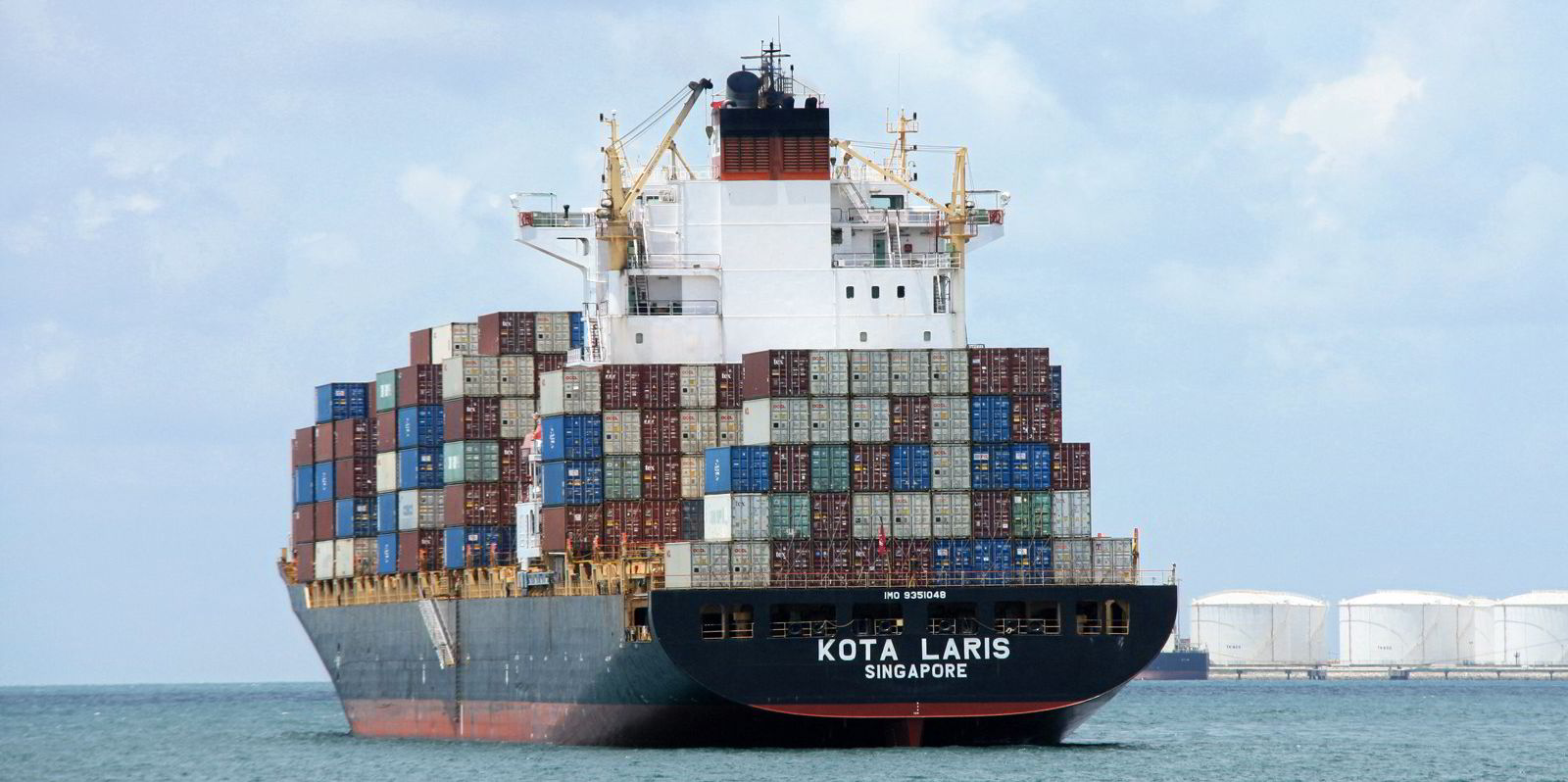Pacific International Lines (PIL) has wrapped up charters of four 7,500-teu newbuildings being constructed for rival Asian liner operators.
The Singapore-based carrier has committed to taking two vessels being built for Regional Container Lines (RCL) of Thailand.
Another two ships of the same design are being chartered from Taiwanese carrier TS Lines.
All four vessels are slated for delivery from Shanghai Waigaoqiao Shipbuilding in 2024 and 2025.
PIL has chartered the RCL pair for periods of 24 months and the two from TS Lines for 36 months.
The charter rates are reported to be in the region of low $40,000 per day, which Alphaliner said was “a healthy level in line with earlier fixtures of similar tonnage”.
The analyst noted that the fixtures show “modern energy-efficient tonnage continues to command strong rates, despite a weaker market”.
PIL has been an active player in the charter market in recent months.
In June, it took three vessels of 13,000 teu each from Greek tonnage provider Danaos for charters that are due to start next year.
Pressure is on
The fixtures point to a degree of confidence in the charter market for larger container vessels, where there remains a relative shortage of vessels.
That is despite growing pressure that has resulted in more relets among liner operators.
Last week, South Korean operator HMM chartered the 6,800-teu Hyundai Singapore (built 2006) with rival liner operator Orient Overseas Container Line, commonly known as OOCL.
The vessel was fixed to the Hong Kong-based carrier for six months at a rate of $28,500 per day.
The charter market for traditional panamax-sized boxships is also under pressure, with several vessels being fixed below last done.
The Zodiac Maritime-owned, 4,300-teu Xiamen (built 2006) was reported fixed to Japan’s Ocean Network Express (ONE) for 11 to 14 months at $18,000 per day.
That is down from recent benchmarks of around $20,000 per day and is closer to the rate to what the vessels may have obtained three years ago.
Time-charter rates for container vessels are at their lowest level since November 2020, according to indices produced by Clarksons Research.
The weaker market is also reflected in shorter fixtures.
Clarksons noted in its monthly review that average periods in August were for seven months, down from 17 months in June.





